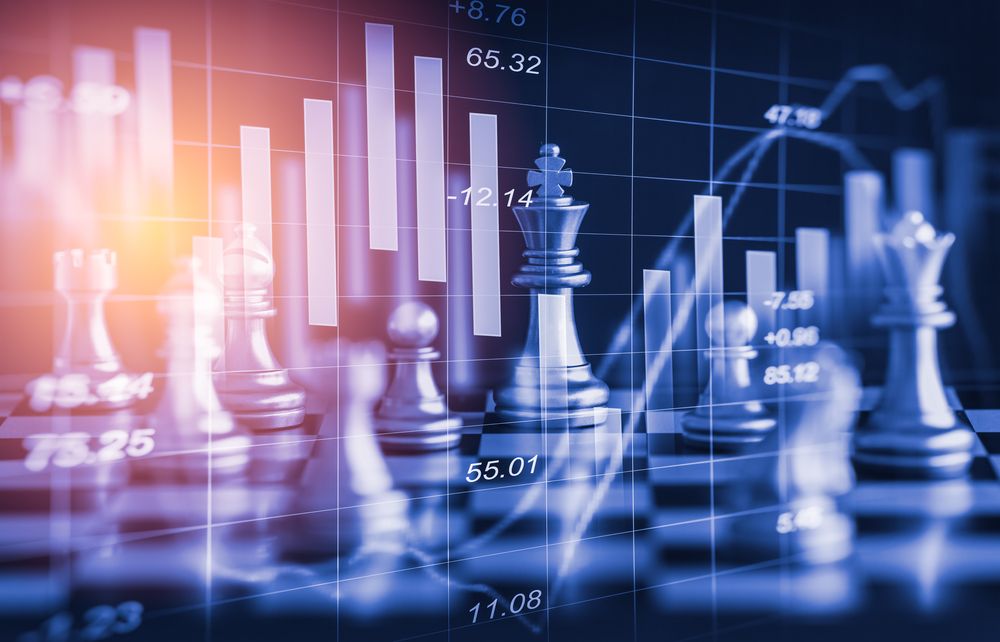
Do You Want To Be The No. 1 Chess Player In The World?
If you are a club player rated around 2000 USCF, then you are probably laughing at the question in the headline. You are probably thinking: "Yes, I would love to be world number-one, but what are my chances to push my rating above Magnus Carlsen? One in a million?"
Well, according to the comedy classic Dumb And Dumber, you still have a chance:
Jokes aside, I have an idea that could make this really far-fetched scenario quite possible. You see, most of the chess community's effort goes towards top-level chess. We already discussed that classical chess is under constant assault. I am happy that most Chess.com commentators agree that good old chess still has a lot to offer without any dramatic changes. So why is everyone concerned about super-tournaments then—shouldn't we instead care more about rank-and-file chess players?
In my article last year, we talked about ratings and how chess players really care about them. So, I have a proposal, but before I share it with you, please promise me that you won't laugh or call me crazy.
OK, here it is: What if FIDE organizes a tournament where the winner gets rating points instead of a cash prize?

I am not talking about the 40-50 rating points the winner of an open tournament can gain for his excellent result. What if the winner gets 500 or even 1,000 points? Yes, that sounds insane, but let me explain what I mean. Say this is a regular open tournament, which normally would have a first prize of around $5,000. Now instead of cash, the winner gets 500 points added to his current rating. The only condition is this rating cannot be used for obtaining any titles and also after some period of time (say, one year) the rating goes back to the pre-tournament level.
Let me give you an example. An IM rated 2450 wins such a tournament and gets 500 bonus points, so his rating jumps to 2950. Now, he is a 2950 player for all purposes, except he cannot get a GM title based on his new rating. He can still get GM norms, but he won't get the title yet. One year later his rating goes back to 2450 and if after that he raises it to the required 2500, he will get the title since he already got the norms while he was a 2950 player.
Of course, such a tournament shouldn't take place more than once per year to avoid rating inflation. The question: Who would benefit from this weird idea?
First, it would benefit the player who gets the boost. Besides the bragging rights of being the world number-one and attention from the media, he will get a unique opportunity with a sky-high rating. Imagine that a lifelong dream of this player was to play a four-game match against Magnus Carlsen. If he wins a regular open tournament and uses his first prize of $5,000 to entice the world champion to play such a match, Magnus would laugh.
But now, as a 2950 player, he can get his wish granted, since by playing such a match and gaining easy rating points, Carlsen would push his own rating over 2900, which is probably his last unachieved goal in chess.
Even if Carlsen declines such an offer, a 2950 player will definitely be invited to many round-robin tournaments to dramatically increase the category of the tournament. Here's an opportunity to play really strong players.
These days we hear about major upsets quite frequently. Here are just a couple of examples:
This is an amazing upset of more than 800 rating points! And who could forget the following game where a 12-year-old boy beat a former candidate for the world title, super-GM Vassily Ivanchuk?
I could go on and on with upsets like these, but you get the picture. The main problem for lower-rated folks is they don't play super-GMs too frequently. The sheer opportunity to play a tournament game with GM Ivanchuk is already similar to winning a lottery! But once you get a 500-point rating boost, it will become reality!
Believe it or not, many high-rated players might be also happy with such a proposal since it will give them easy rating points. Getting back to Magnus Carlsen's example. How long will it take for him to reach 2900 in the current tournaments, where a draw with a fellow super-GM will throw him back? One year, two years, maybe never? But just playing four games with an IM rated 2950 will bring him to the goal.
To some extent it reminds me of the situation that might have happened in the U.S. championship some 20 years ago. A convicted killer, Claude Bloodgood, found a way to game the rating system, and his USCF rating reached a truly astonishing peak of 2789. He was the second-highest-rated player in the U.S. after Gata Kamsky at the time. So, by rating, Bloodgood qualified to play in the coming U.S. championship and he asked the USCF to allow him to play. While it was clearly impossible to grant such a request from a convicted killer serving a life sentence, as far as I remember the top U.S. players didn't really mind. Playing a 60-year-old guy with a rating of 2789, but who probably never played at a master level even during his prime, would be like taking candy from a baby.
I checked Claude Bloodgood's games in a database and in most of them he employed dubious openings. Besides, most of his opponents were pretty much beginners. Take a look at the next game:
So a seasoned professional playing Claude Bloodgood would mean very easy rating points indeed.
Another party that might be happy with my proposal is FIDE. Such a tournament could bring it additional revenue.
Yes, there will be people who really hate this idea. Magnus Carlsen, for example, won't be particularly thrilled by the fact that he is suddenly not world number-one. Well, as I said, this is just an idea. If it is too dramatic, the bonus could be smaller, so Magnus keeps his rightful place at the chess summit.
I am a realistic person, so I know that FIDE will never accept such a proposal, but maybe the ever-creative Chess.com community can?
So, my fellow Chess.com members, what do you think of this idea?



